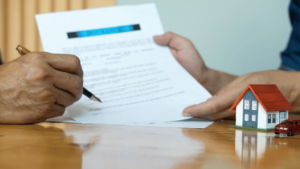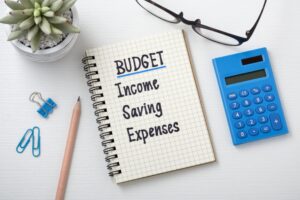
Hello there! It seems people are not interested in knowing what they ought to know. And that is why many issues are rising these days on property transactions. The settlement process in property law is not easy. You need a licensed conveyancer to take you through the conveyancing process.
Knowing the steps to take to create legal documents for property transactions is expedient. Then, of course, you can entrust the property you want to sell to a buyer’s agent or real estate agent. But that doesn’t deny the fact that you need a conveyancing solicitor. Conveyancing services are not what one can do by oneself. It requires specialized knowledge.

In other words, you need competent lawyers that understand the tips and risks involved in the conveyancing process. Not all solicitors can act on your behalf regarding the property settlement process. You need a conveyancer to prepare legal documents with government authority. Yes! You need to hire someone that has undergone training at the Australian Institute of conveyancers. And that is how you can boast of owning or selling a property.
Hence, conveyancing involves signing documents, creating a contract of sale, and doing other legal work. In addition, conveyancing work involves connecting with a bank or financial institution in the property transaction process.
However, in this write-up, we will discuss the meaning of conveyancing and proceed to a step-by-step guide. Therefore, you have a role to play. Please shun all interruptions and follow us closely.
What is conveyancing?
Let’s make it simpler. What is conveyance? Transferring property from one person to another is referred to as a conveyance. The phrase is frequently employed in real estate deals when buyers and sellers share ownership of a plot of land, structure, or house.

An instrument of conveyance—a legal document such as a contract, lease, title, or deed—is used to do this. The agreement outlines the parties’ roles and responsibilities, the agreed-upon purchase price, and the date of the transfer.
Therefore, the “legal” transfer of a property from one owner to another is called conveyancing. This word refers to administrative labor required to ensure a home purchase is legitimate. Once the buyer and seller exchange signed contracts, the conveyancing procedure is deemed to be finished. The transaction begins when a house offer is approved and completed once the buyer receives the keys.
The conveyancing process involves preparing lodge legal documents to back up the sale or property transfer from one person to another. Conveyancing lawyers must carry it out. Only a conveyancing solicitor can carry out this process.
Conveyancers are in charge of verifying the final settlement and the final payments involved in the property transaction process. Is it possible to own conveyancing? Of course, it is not advised. That’s not where we are going.
Now that you understand conveyancing, let us discuss the step-by-step guide to the process. Are you ready for the ride? Let’s ride!
Step-by-step guide in the conveyancing process
ID Checks
The first step in conveyancing services that a qualified conveyancer must carry out is ID checks. Next, conveyancers or the conveyancing firm will check the house title. They are doing this to ensure things are in order. Hence, if you notice the lawyer is not interested in checking the IDs, that’s a red flag.
Conducting property searches
The next step after checking the ID is to conduct property searches. First, solicitors will check if the property is safe and hassle-free. Conveyancing searches, commonly referred to as property searches, are inquiries made to public agencies to obtain more details about the property you intend to purchase.
For instance, searches may provide information on the likelihood of flooding, specifics of access rights, or whether any upcoming developments will impact the land.
Colliding with other conveyancers
The opposing party’s conveyancer and your conveyancing attorney will work together to complete the transaction in the next stage. Not at all; your conveyancing attorney will contact the relevant parties on your behalf.
Additionally, this is the time for conveyancers to resolve any problems that may have resulted from the searches and surveys.
Review the mortgage offer

Conveyancers handle all the legal paperwork necessary to transfer property ownership from the seller to you. They communicate with your mortgage provider and the seller’s attorney.
Additionally, conveyancing lawyers conduct several searches to find potential problems with the building and its surroundings. For example, to determine whether there are any potential issues that might influence your new home, they will look for construction activity in the area, consult with the Environment Agency, and contact utility companies.
Coordinate completion and contract exchange dates
What is the difference between exchange and completion dates? When a buyer deposits money and contracts are exchanged, the sale or purchase of a home is finalized. The transaction is complete when the total amount is given to the sellers’ attorney, and ownership is transferred to the buyer.
Creation of financial statement
Your conveyancer will organize the settlement, where the final sale documentation will be exchanged and signed by all parties involved. The seller also receives the remaining amount of the purchase price. No one has to be present on the day, neither the buyer nor the vendor. The buyer gets the keys once the settlement is complete.
Register the ownership with the Land Registry
Due to the Land Registry’s consolidated storage of all the property title information required for conveyancing Sydney, registration facilitates the purchase and sale of real estate. This makes it simpler to determine who owns the property and what advantages and liabilities are associated with the land. For instance, it is essential for all conveyancers in South Wales to do this step.
Other things you need to know about conveyancing services
Conveyancing fees are one of the reasons why some people think they can sell or buy a property without involving a conveyancer. The cost depends on the property you want to buy or sell.
Also, the solicitor or conveyancer you select, the location where you are buying or selling a property, and the house’s value can all affect the cost of the conveyancing services. Therefore, it’s crucial to confirm the details of a conveyancer’s quote, such as whether or not it includes stamp duty. The most critical thing to keep in mind is that the lowest quote might not always turn out to be the best deal. Other costs may include registration fees with the Land Registry.
On a final note
Dear reader, we hope you’ve seen something inspiring about the law society here. Before you pay for a property, ensure you hire a qualified solicitor to represent you.
With the above-listed points, we believe you’ve grabbed something special about conveyancing to run with. It is good to seek legal advice before buying or selling a property. Finally, do you have something to say regarding this topic? Please share with us. Thanks for reading!





